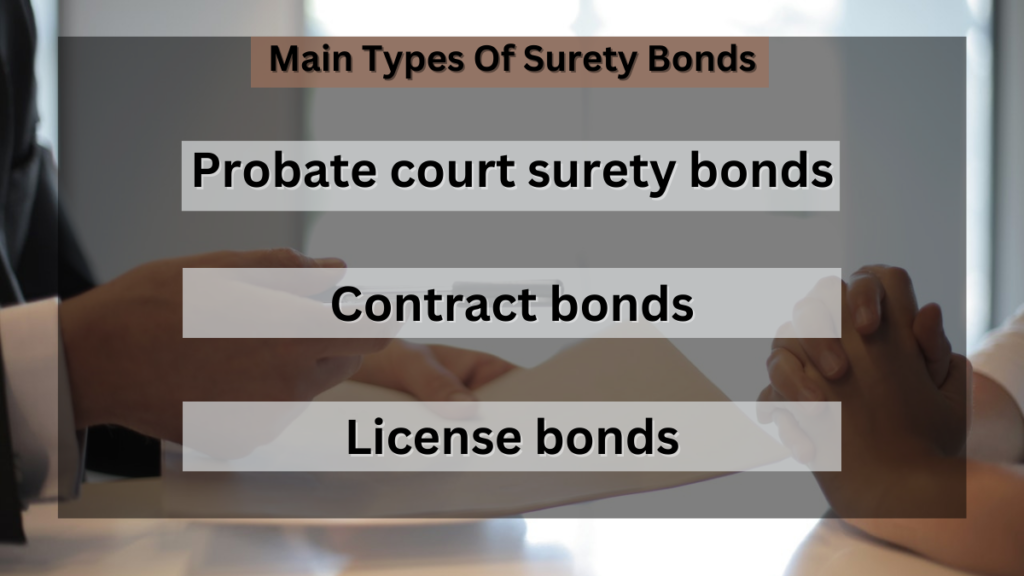How long do surety bonds last
There is no such thing as a surety bond that is valid indefinitely, although some ones may continue to be in effect for an endless period of time. The question now is, how long does a surety bond remain in effect? Some need to be renewed on a yearly basis, while others cannot be renewed under any circumstances. To put it another way, a surety bond remains in effect for the amount of time specified by the “obligee,” the entity that mandates the purchase of the bond (as long as the premiums are kept up to date, of course). There is a wide range of time periods that may be covered by various kinds of surety bonds.
In essence, some surety bonds are only valid for a certain amount of time, while others remain in effect forever or until the principle is released.
Main types of surety bonds
Probate court surety bonds
A person who is appointed in a probate action as a trustee, guardian, executor, or administrator has a specific duty to carry out the obligations associated with their position with honesty, loyalty, and good faith. This kind of obligation is known as a fiduciary responsibility.
A probate surety bond, often referred to as a fiduciary bond, is a kind of bond that ensures the trustee, guardian, executor, or administrator of an estate will fulfill their duties as fiduciaries to the beneficiaries of the estate in an appropriate manner.
Contract bonds
Contract bonds are often necessary before a deal can be closed in order to ensure that all parties engaged in a contractual agreement live up to their end of the bargain.
Duration
While contract bonds are valid for the whole of the contract’s term, they must still be renewed on an annual basis. Yet, in contrast to license bonds, contract bonds do not become null and void if they are not renewed.
Renewal
In most cases, there is no reassessment of the main amount associated with contract bonds. No matter what, a premium or release is necessary, and in the event that neither is delivered, the account may be turned over to collections. In either scenario, once the bond has been renewed, it remains in effect for a full year following the date on which it was renewed. The procedure is carried out once year for as long as the bond is required.
License bonds
License bonds are often needed before a professional license may be issued in order to ensure compliance with certain standards of behavior and to keep professionals responsible for those standards.
Duration
The majority of licensing bonds have a duration of one year, at the end of which they must be renewed. In the event that they are not renewed, the bond will become inactive, and the institution that awarded your professional license would often take action to revoke it.
Renewal
In the case of license bonds, you could be requested to provide your most recent financial information, and an up-to-date credit check might be performed, all for the purpose of underwriters determining how much of a credit risk you pose. Because of this risk, you are offered a premium that might be greater or lower than the premium you first paid, depending on how your credit has changed since you first purchased the policy.
This is not the case for all license bonds, however, since some of them are seen as having a minimal risk, although this would still be contingent on the sort of license bond that is being discussed.
How to get a surety bond
In order to get a surety bond, a person, a company, or both are often subjected to some kind of investigation into their past activities. In most cases, this requires the review of a credit report as well as the delivery of financial information pertaining to the organization. The principal’s creditworthiness will serve as the primary factor in determining not just the bond amount but also the premium. The kind of connection and the character of the company may also be relevant considerations.
The amount that constitutes a bond’s premium is normally between 1 and 15 percent of the bond’s face value. In most cases, yearly payments are required for the premium. It is possible that the United States Small Business Administration may guarantee certain business surety bonds. This will result in the firm having to pay an extra charge, but it may make it simpler for the company to get a bond.
